6 SEO tactics for home service companies
Boost your home services company's online visibility with niche-specific tactics, such as cost pages, calculators and more.
As is the case with B2B keyword research and other niche-specific SEO activities, home services SEO has both:
- Nuances that are specific to the home services niche.
- Elements that apply universally across SEO and local SEO.
This article tackles general SEO best practices and uniquely effective tactics for home service providers.
SEO best practices for home service providers
When doing SEO for a home services company, you want to focus on a few key areas at a high level:
- Google Maps placement.
- Localized organic search listings.
- General organic search listings.
- Search results on platforms other than Google (e.g., Yelp, Angi, Bing, etc.)
There are a lot of general local SEO best practices that will apply to any home services niche, such as:
- Getting a volume of quality reviews.
- Optimizing, managing and tracking the performance of your Google Business Profile.
- Tracking calls and leads.
- Managing your business data across data providers.
- Getting local citations.
- Link building.
- Content creation.
Dig deeper: The SEO hierarchy of needs for local businesses on a budget
Let’s examine some more specific (and often underutilized) tactics that home services companies can use.
1. Cost pages
An often leveraged tactic for local SEO is to create town + service pages targeting your core service.
So, a roofing company based in Providence, R.I., would create pages for towns surrounding Providence, targeting terms like Cranston, Rhode Island or Seekonk, Mass.
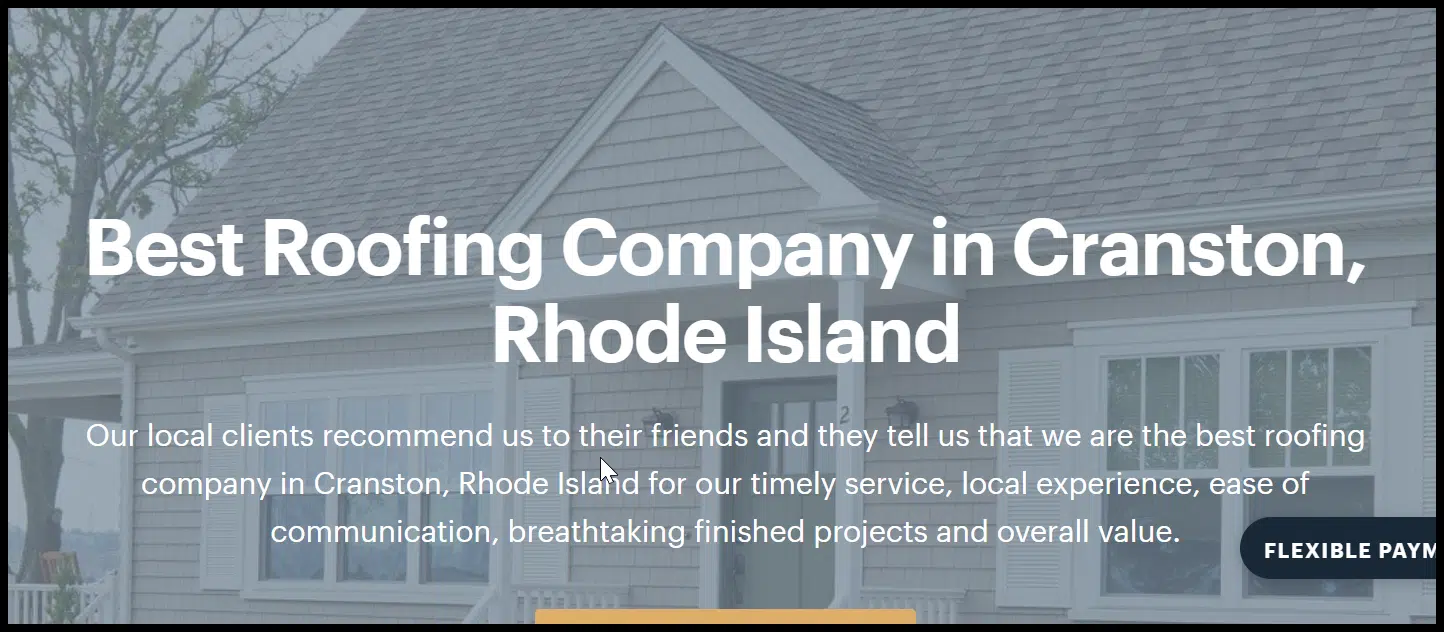
This is a great tactic for home services companies, but a somewhat less common one is to create “cost” pages that break out the costs of your specific service in general and by region, potentially even over time.
These pages do a few different things:
- Help educate potential customers (if they’re geo-specific, then potential buyers in your market).
- Reach potential customers deep into the purchasing process.
- Attract passive links from sites looking to cite data surrounding costs
- Frequently drive relevant traffic.
You can build these pages out with proprietary data related to your service and build out detailed cost charts:
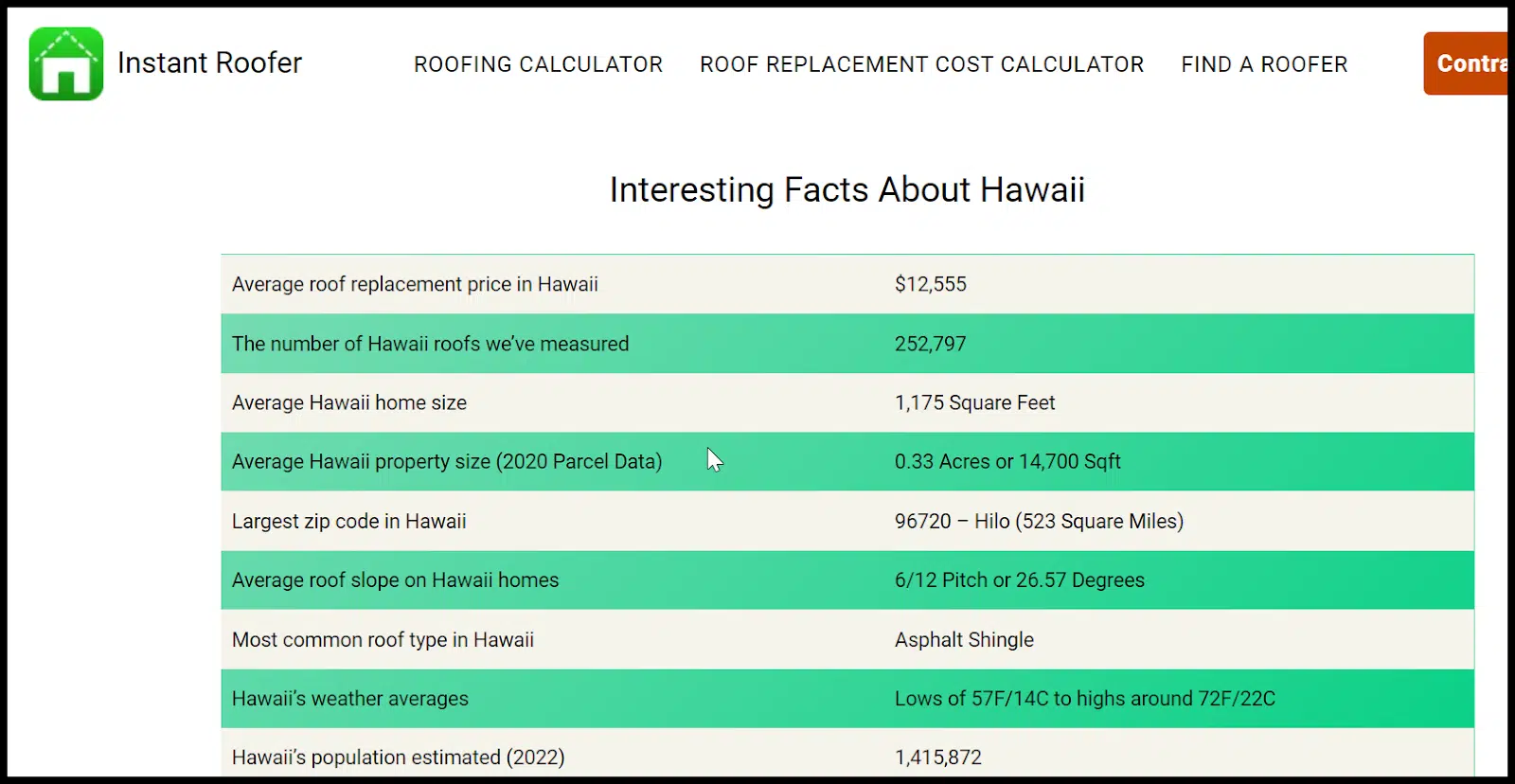
Also, include information like:
- Financing (particularly if you or a partner offer financing).
- Factors impacting cost (materials, common issues creating a larger service, labor and demand in a specific area).
- Buying guide style “questions to ask” about the cost of a specific service.
Find some of the more common cost-related modifiers in your niche to help build out sub-sections of the page:
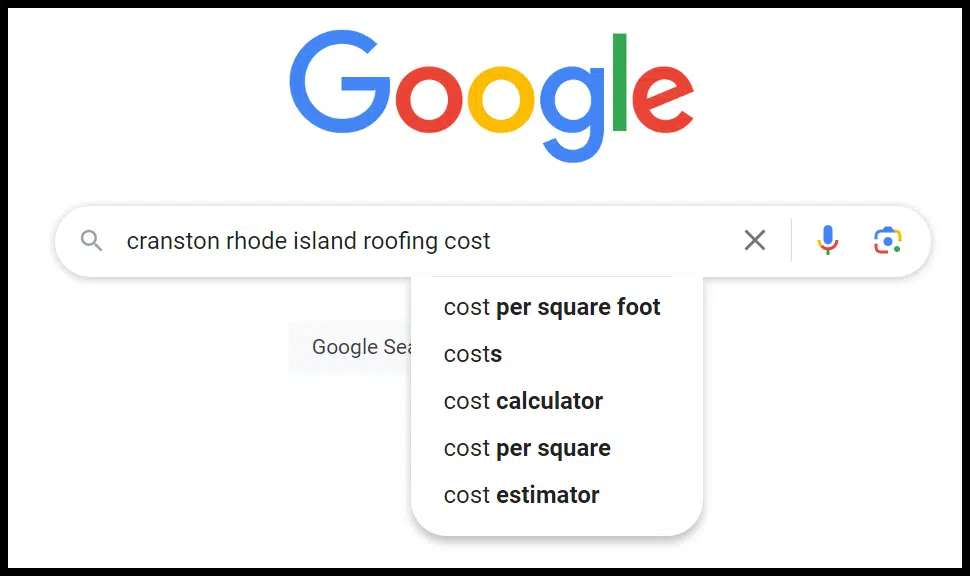
Dig deeper: Localized SERPs: Winning traffic and leads with service area pages
2. Calculators
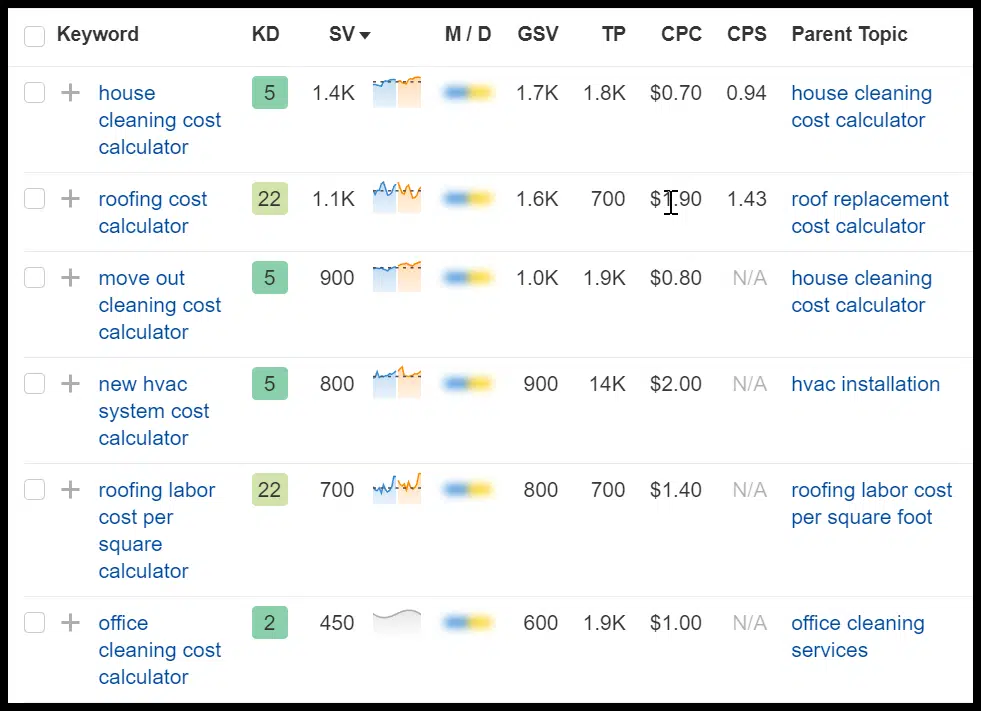
Building a cost calculator is another way to capture cost-related and calculator searches, increase engagement on your site and build links to the domain.
If you’re not sure how to design the cost calculator, you can use an AI tool like ChatGPT to help with your local SEO efforts:
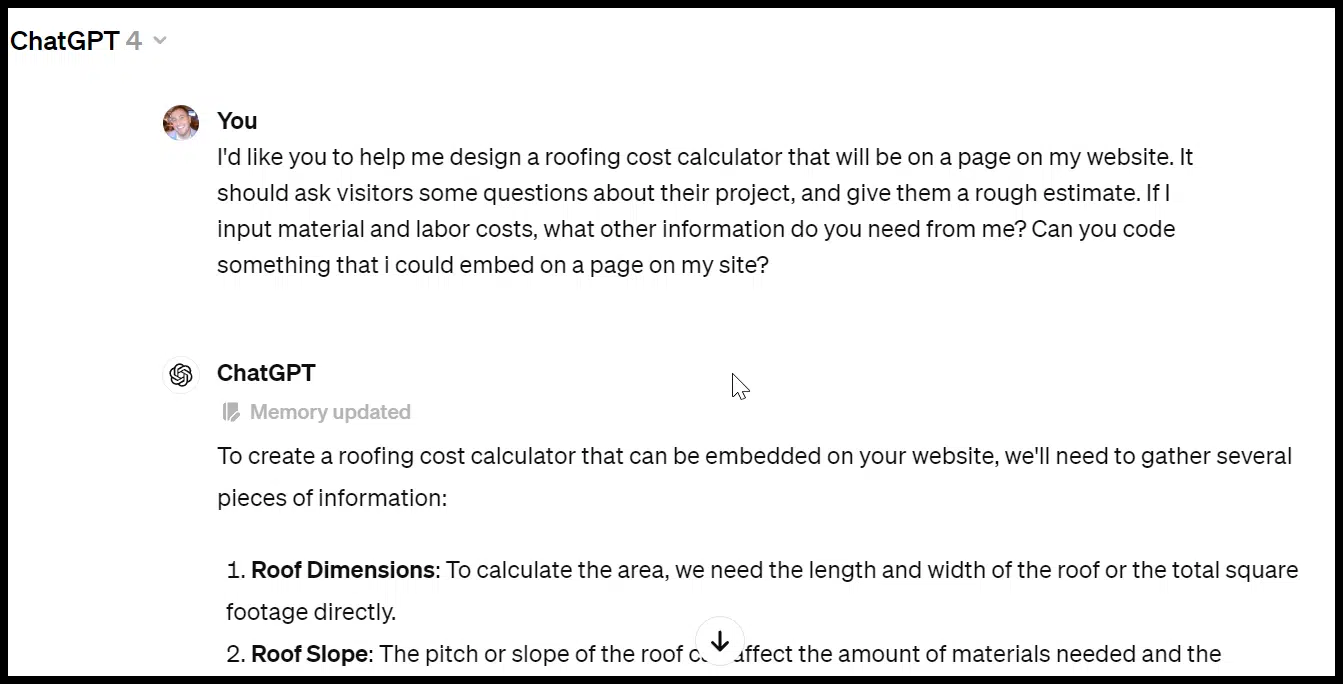
When building out your calculators, think about a few key items:
- Answer the questions your customers most often ask when it comes to the calculator you’re building. Being the most comprehensive calculator can be a way to stand out and generate links and shares.
- Cost is usually the most obvious calculator option, but there may be others, such as materials calculators, tools for quickly determining measurements and value calculators (e.g., how much will a prospect save with solar panels).
- Make the calculator load quickly and be easy to use.
3. ‘Best of’ lists
Your site’s home page and location + service pages may rank well for queries like {Location} + {Service}. Here’s a result for Nashville roofers:
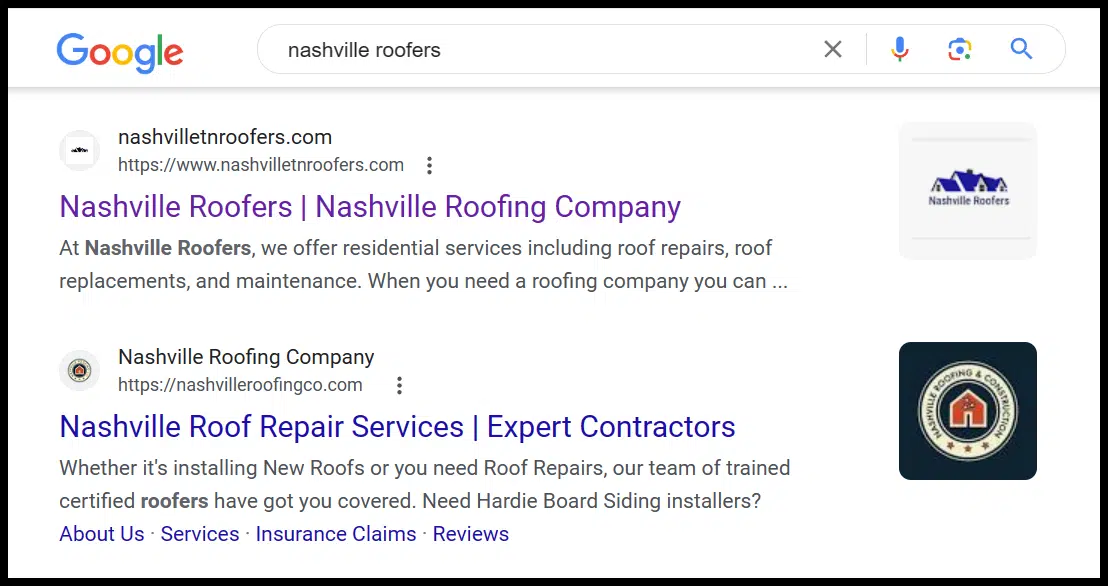
In the same market with the same players, a “best of” query (which in many markets will only show lists on third-party sites like Angi) has a roofing company site ranking first where they ranked themselves among competitive Nashville roofing companies:
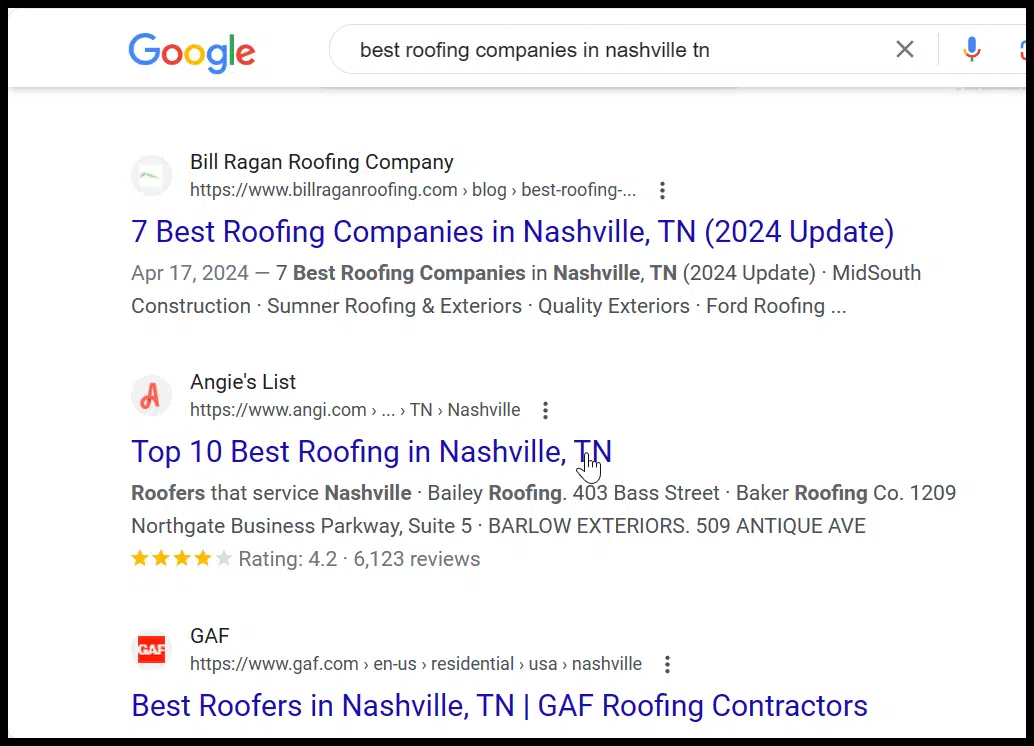
A lot of businesses are loath to talk about competitors at all. Still, if you’re willing to be even-handed and honest and highlight your own points of differentiation, this can be another way to rank well in competitive markets.
4. Topically relevant informational content
Building deep topical authority around your core competencies with informational content is valuable in the home services niche (as it is in other niches).
As a service provider, you have two key advantages in building out this kind of content:
- As you build local citations and update your NAP information across providers you’re seen as a service provider, not a “thin affiliate site.”
- You have deep topical expertise! As an owner, you may not have time to create content yourself, but there are many ways to infuse your expertise into content that your team or a third party helps generate.
This content then supports your lower funnel service + town / city pages, gives you content to share via social channels, often builds passive links and generates traffic that you can put into a remarketing audience for paid channels.
5. Local link building
Links are still a cornerstone of any SEO strategy, even one that’s largely locally focused.
The good news for home services companies is that in many locally focused SERPs, there’s much lower competition than in some national query spaces.
Traditional link building tactics like guest posting, niche edits and digital PR are used by home services companies, and they still work to varying degrees when executed properly.
Some of the unique opportunities available to locally focused home services businesses involve focusing efforts on:
- The company founder.
- The primary town(s) the business is located in.
- Vendors and partners for the business.
If you own a small business, you can work on getting profiled in places like your alma mater or hometown to get links back from those sites.
You can also ask vendors and partners for links from their site/partner pages, opportunities to guest post on their site, etc.
Local links from businesses, event websites and publications related to the area where your business is located and targets are also incredibly valuable.
Again, the positive here is that many of your competitors will have a relatively low number of links, so adding as few as a handful of new links monthly can allow you to get traction quickly in local SEO markets.
6. On-page and anchor text optimization
Overall, on-page SEO best practices for home services companies are largely similar to overall SEO best practices. You want to optimize meta titles, build smart internal links and mark up content when appropriate.
One potential problem I’ve seen in local SEO in general and specifically in the home services niche is using aggressive anchor text and what some call “over-optimization” (which is a bit of a misnomer but basically means cramming your target keyword and close variations in too aggressively).
Often, small businesses don’t have much money to pay for SEO, and they get more junior SEOs working on their accounts.
Some practitioners have a tendency to dial up the use of keywords or close keyword modifiers on-page, which can look spammy and manipulative, like the type of lower-quality AI that Google is trying to combat with recent algorithm updates.
Here’s a series of headlines on the same page from a site targeting Providence roofing terms:
- “Providence, RI, Roofing Contractors Who Get The Job Done Right”
- “Residential Roofing In Providence, RI”
- “Trustworthy Providence Roof Replacement Services”
- “Problems Our Roofing Contractors Solve With Residential Roofing Services In Providence”
- “Why Hire Our Professional Roofer In Providence?”
- “Leading Residential And Commercial Roofing Services In Providence, RI”
Hang on. Where are those roofing services located again?
Anchor text from external links can be subject to a similar issue. If you’re a home services company, make sure you understand where your SEO vendor is getting links.
If they’re using tactics like guest posts and niche edits where they control the anchor text, make sure they’re being deliberate about the terms they’re using to link to your site.
Suppose you’re targeting “Providence roofing company” and cramming close variations of the phrase onto the home page and key landing pages, hammering that phrase as the anchor text from external links and aggressively using that text in internal links. In that case, you’re highly likely to run into issues (even if this approach works initially).
Home service queries can be extremely valuable, and companies that leverage a combination of general SEO and local SEO best practices, along with some of the niche-specific tactics outlined here, can build a tremendously profitable (and scalable) channel for their business.
Dig deeper: How to extract GBP review insights to boost local SEO visibility
Contributing authors are invited to create content for Search Engine Land and are chosen for their expertise and contribution to the search community. Our contributors work under the oversight of the editorial staff and contributions are checked for quality and relevance to our readers. The opinions they express are their own.
Related stories
New on Search Engine Land